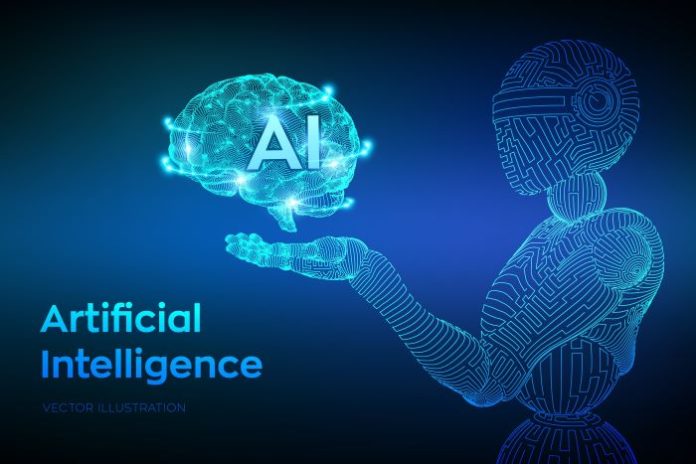Artificial Intelligence (AI) is no longer a futuristic concept confined to science fiction; it is actively transforming the way businesses operate today and shaping the workplaces of tomorrow. From automating routine tasks to enabling unprecedented levels of personalization and strategic decision-making, AI’s influence is pervasive and profound.
As organizations grapple with these rapid changes, understanding the true impact of AI on future workplaces and business innovation becomes essential for leaders, employees, and entrepreneurs alike.
Table of Contents
The Evolution of AI in Business: From Automation to Strategic Partner
Historically, AI’s primary role in business was automating repetitive tasks, think of chatbots handling customer inquiries or robotic process automation streamlining administrative workflows.
However, recent advancements have propelled AI into a strategic partner capable of complex analysis, predictive modeling, and even creative problem-solving.
The Shift Toward Intelligent Decision-Making
Today, AI systems can analyze vast datasets in real-time, uncover hidden patterns, and generate actionable insights that humans might overlook. For example, predictive analytics enable companies to anticipate consumer behavior, optimize supply chains, and personalize marketing efforts at an individual level. This shift from reactive to proactive decision-making fundamentally alters organizational dynamics, fostering a culture that values agility and data-driven strategies.
Personalization and Customer Experience
AI-driven personalization is revolutionizing customer interactions. Companies like Amazon and Netflix leverage sophisticated algorithms to recommend products and content tailored to individual preferences. This level of customization enhances customer satisfaction, loyalty, and lifetime value, factors that directly influence a company’s bottom line.
AI’s Role in Shaping Future Workplaces
The integration of AI into the future workplace is not just about automation; it’s about redefining roles, workflows, and organizational structures.
Automating Routine Tasks and Enhancing Human Roles
One of the most immediate impacts of AI is automating mundane and repetitive tasks. This shift allows employees to focus on higher-value activities such as strategic planning, creative problem-solving, and relationship management. For example, AI-powered tools can handle scheduling, data entry, and basic customer service, freeing human workers to tackle complex issues that require emotional intelligence and nuanced judgment.
Augmenting Skills and Fostering Continuous Learning
As AI takes over routine tasks, the demand for new skills, particularly in AI literacy, data analysis, and digital collaboration, will grow. Forward-thinking organizations are investing in upskilling their workforce, emphasizing continuous learning to adapt to the evolving technological landscape. Personal development platforms powered by AI can recommend tailored learning paths, making employee growth more efficient and aligned with organizational needs.
The Rise of Remote and Hybrid Work Models
AI also facilitates remote work by providing tools that enhance virtual collaboration, monitor productivity ethically, and support flexible scheduling. Intelligent virtual assistants, like Overchat AI, can help coordinate meetings, manage workflows, and provide instant support, making remote work more seamless and productive.
Business Innovation Accelerated by AI
AI is a catalyst for innovation across industries, enabling new products, services, and business models.
Creating New Business Opportunities
AI opens avenues for entirely new markets and revenue streams. For instance, in healthcare, AI-driven diagnostics and personalized treatment plans are transforming patient care. In manufacturing, predictive maintenance powered by AI reduces downtime and extends equipment lifespan. These innovations not only improve efficiency but also create competitive advantages.
Enabling Agile and Adaptive Organizations
Organizations leveraging AI are inherently more agile. They can rapidly test new ideas, iterate on products, and respond to market changes with agility. AI-driven simulation and scenario analysis allow businesses to evaluate potential strategies before implementation, reducing risks and increasing the likelihood of success.
The Ethical Dimension and Responsible AI
While AI offers immense benefits, it also raises ethical considerations, such as data privacy, bias, and transparency. Responsible AI deployment requires organizations to establish clear guidelines, ensure fairness, and maintain human oversight. Leaders must balance innovation with ethical responsibility to foster trust among customers and employees.
Expert Opinions and Personal Perspectives
Many industry experts agree that AI is a double-edged sword; its potential to revolutionize future workplaces is enormous, but it must be managed carefully. Satya Nadella, CEO of Microsoft, emphasizes that AI should augment human capabilities rather than replace them, fostering a collaborative environment where technology empowers employees.
From my personal viewpoint, AI’s true power lies in its ability to amplify human creativity and strategic thinking. When integrated thoughtfully, AI tools like Overchat AI can serve as intelligent assistants, providing insights and automating routine tasks, freeing up human talent for higher-level innovation. The key is to view AI as a partner, an enabler of new possibilities rather than a threat to jobs.
Challenges and Future Outlook
Despite its promising potential, AI adoption faces hurdles such as high implementation costs, data privacy concerns, and talent shortages. Additionally, organizations must navigate the societal implications of automation, including workforce displacement and ethical dilemmas.
Looking ahead, AI is expected to become even more sophisticated, with advancements in natural language processing, computer vision, and autonomous decision-making. These developments will further embed AI into every facet of business operations and workplace culture.
To thrive in this evolving landscape, organizations should focus on building a flexible, innovative culture that embraces change. Investing in AI literacy, fostering cross-disciplinary collaboration, and maintaining a human-centric approach will be critical.
Conclusion
AI’s impact on future workplaces and business innovation is both transformative and multifaceted. It offers unprecedented opportunities to enhance efficiency, foster creativity, and unlock new markets. However, realizing these benefits requires strategic planning, ethical considerations, and a commitment to continuous learning.
As we navigate this new era, tools like Overchat AI exemplify how intelligent systems can serve as valuable collaborators, helping organizations stay competitive and innovative. The organizations that will succeed are those that view AI not just as a technological upgrade but as a fundamental shift in how work is conceived and executed.
Embracing AI’s potential today will shape the resilient, agile, and innovative workplaces of tomorrow.











